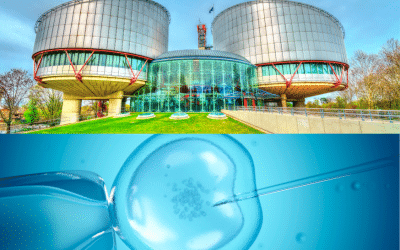A Canadian Liberal MP, Anthony Housefather, from Trudeau’s government, plans to introduce a bill in May to change federal law to make it legal to pay surrogate mothers, and to buy eggs and sperm. “A woman can decide to become a surrogate mother for a variety of reasons,” says Housefather. “I don’t see the problem if a women decides that it’s an economic opportunity.”
In 2004, Canada ruled on surrogacy, which is now allowed throughout the country, except for Quebec. However, payment remains illegal and is punishable by a maximum prison sentence of 10 years and a fine of up to $ 500,000. Under current law, surrogates can be reimbursed for any pregnancy-related expenses up to 22,000 € (for maternity clothes, etc…). Surrogacy costs are estimated between 60,000 and 100,000 €: including compensating the surrogate mother for the cost of ART treatment (8,000 – 15,000 €), lawyer’s fees, legal advice, insurance, etc.
The Canadian Ministers and Trudeau’s cabinet are divided on the issue of surrogacy. Although some support the idea, there are many voices of opposition, including Employment Minister Patricia Hajdu, a former social worker in Northern Ontario who says, “What I learnt from my experience with vulnerable populations is that there is always a risk, when allowing payment for services, that people in need are likely to provide these services. “ Francoise Baylis, Canada Research Chair in Bioethics and Philosophy, wonders why “we put so much emphasis on what some adults want, while paying very little attention to the standpoint of children who will know that money was spent to have them.” During her research, she has heard testimonials from young people who “feel like objects, a product of commodity because they know they were purchased”. MP Hedy Fry does not agree either. “As a doctor, I am worried. It’s a slippery slope,” she says, pointing out that a pregnancy can always have complications. “It’s not an adequate way to make money.” The women’s rights group also is rebelling against Housefather’s proposed bill. In a press release Diane Guilaut wrote that paying surrogates is “the highest level in human life commodification“, warning that poor women will be exploited in these scenarios.
In Europe, the United Kingdom has also authorized so-called “non-commercial” surrogacy since 1985. No financial transaction is allowed, but the surrogate mother may receive up to 19,000 € to cover expenses incurred during pregnancy. A survey conducted in 2011 and published by the Sunday Telegraph in 2012, revealed that 100 children had been born to surrogate mothers in Britain in 2011. That same year UK clients ordered babies from 1,000 surrogate mothers in India, thus accounting for 50% of the 2,000 surrogate babies born in India.
Caroline Roux, Assistant General Delegate and Director of VITA International speaks out:
“This debate in Canada clearly demonstrates how only a few years after passing the first surrogacy law, which claimed to provide “regulatory guidelines”, the legislative situation is now being challenged to go further. On the one hand the non-commercial aspect is an illusion in view of surrogacy costs and the compensations received by the mother which is a form of payment, and on the other hand, the supply inevitably creates the market as can be observed in Great Britain or with this current Canadian bill. There is simply no way to define an ethical surrogacy. And the transgressions continue non-stop: this should be a strong signal for France, which is currently undergoing bioethical consultations. Whether or not surrogacy is paid for, it is an irreversible and irreparable mistreatment regarding the origin of babies born in this manner, and an exploitation and alienation of women’s body. France has a major role to play in promoting the prohibition of surrogacy both on a European and on a worldwide level, for non-commodification of women’s body and for the respect of a child’s dignity, which cannot be regarded as a commodity to be bought, sold or given away.“



